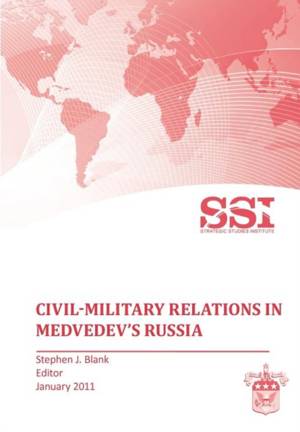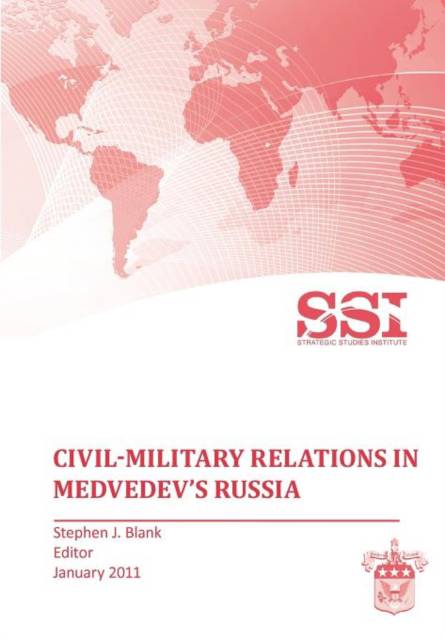
Bedankt voor het vertrouwen het afgelopen jaar! Om jou te bedanken bieden we GRATIS verzending (in België) aan op alles gedurende de hele maand januari.
- Afhalen na 1 uur in een winkel met voorraad
- In januari gratis thuislevering in België
- Ruim aanbod met 7 miljoen producten
Bedankt voor het vertrouwen het afgelopen jaar! Om jou te bedanken bieden we GRATIS verzending (in België) aan op alles gedurende de hele maand januari.
- Afhalen na 1 uur in een winkel met voorraad
- In januari gratis thuislevering in België
- Ruim aanbod met 7 miljoen producten
Zoeken
€ 24,45
+ 48 punten
Omschrijving
The best recent scholarship on Russian civil-military relations explicitly addresses this issue's importance for both domestic and external security. An inquiry into the present state of those relations under conditions of defense reform and the current international situation is of immense analytical and policy relevance for both domestic and external security in Russia. While the Russian regime is serious about military reform, it is encountering severe objections from the uniformed military, and the military has successfully persuaded the government to accept its expansive concept of the threats to Russia, i.e., its threat assessment. Therefore, we must closely follow those developments to understand more clearly current tendencies in Russian politics and policy as a whole. Specifically, this chapter examines issues pertaining to civil-military relations in several areas of Russian national security policies that suggest some disturbing trends for the future.
Specificaties
Betrokkenen
- Auteur(s):
- Uitgeverij:
Inhoud
- Aantal bladzijden:
- 114
- Taal:
- Engels
Eigenschappen
- Productcode (EAN):
- 9781780395524
- Verschijningsdatum:
- 25/01/2011
- Uitvoering:
- Paperback
- Formaat:
- Trade paperback (VS)
- Afmetingen:
- 170 mm x 244 mm
- Gewicht:
- 195 g

Alleen bij Standaard Boekhandel
+ 48 punten op je klantenkaart van Standaard Boekhandel
Beoordelingen
We publiceren alleen reviews die voldoen aan de voorwaarden voor reviews. Bekijk onze voorwaarden voor reviews.









